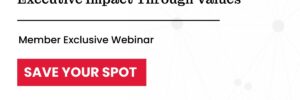
Learn about the personality trends of emergent Hungarian leaders that determine current and future success in the evolving business landscape of Hungary.

Learn about the personality trends of emergent Hungarian leaders that determine current and future success in the evolving business landscape of Hungary.

The Science of Personality podcast from Hogan Assessments has explored the impact of personality on leadership for five years and counting. Cheers, everybody!

Hogan Assessment’s Allison Howell explains how gossip, often seen as harmful, can actually serve as a survival instinct and unofficial communication tool—especially in workplaces where trust in leadership is low and official messaging feels out of touch.

Hogan Assessments meets Leadership Success, in this powerful episode, uncovering organizational psychology, data-driven decisions, consultative sales, leadership development, behavior change and how AI can improve learning and development teams.

Join Ryne Sherman in this Association of Executive Search and Leadership Consultants (AESC) webinar as he introduces a research-backed approach to understanding how leaders shape—and are shaped by—organizational culture. You will gain new tools for evidence-based leadership selection.

Ryne Sherman of Hogan Assessments explains that imposter syndrome can boost motivation, empathy, humility, and awareness of others. Rather than a flaw, he sees it as a trait that can enhance leadership and relationships.

Join Jackie VanBroekhoven Sahm as she explores the dark side—and how to coach through it—at Summit 2025.

Join Zsolt Feher, VP of Business Development at Hogan Assessments, on June 4 at 3 PM UK time for a live webinar, “The Hidden Trigger: What Personality Says About Safety?” He’ll explore how personality data uncovers high-risk behaviors and shapes the future of workplace safety.

For company culture to thrive, employees must understand and actively engage with it in their daily behaviors and decisions. Dr. Ryne Sherman notes that employees are essential in modeling company values, holding peers accountable, and shaping the unwritten rules that define workplace culture.

Experts at Hogan Assessments say the rise in revenge quitting stems from a deeper disconnect between employees and their workplace, driven by poor communication and misaligned values. Dr. Ryne Sherman emphasizes that it’s not just about daily frustrations—but the issue is preventable with the right cultural alignment.